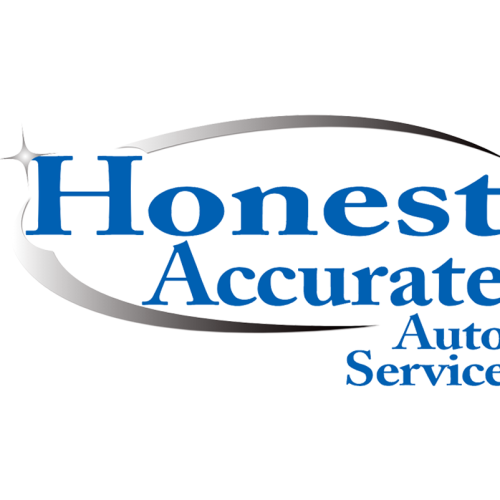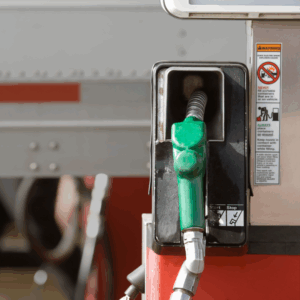Knock, knock…who’s there? Mr. Low-octane fuel! If you are hearing a metallic knocking or pinging in your engine (which can occur at various speeds), you might simply be using the incorrect fuel grade (octane rating) for your car or truck.
How do you choose the correct octane-rated fuel for your vehicle? And if you use the wrong octane rating, what are the downsides? Is spending more $$ per gallon and using a high-octane fuel better for your engine? Let’s first look at how engines work, what octane rating is, and what it does for your vehicle’s engine.
Your engine requires a specific ratio of fuel and air, which is introduced into the cylinder chamber. The piston then compresses the fuel-air mixture and a spark plug ignites it in the cylinder, burning the fuel and producing energy to move the pistons and create motion and power. However, if the fuel-air mixture ignites before it should (pre-detonation), you will hear a “knocking” or “pinging“ sound as the fuel ignites prematurely in the combustion cycle. If this is occurring, not only will you have less fuel efficiency, but over time there can be damage to the engine as it places stress on the piston rings, rod and crank bearings, and primarily the pistons themselves. Now we are talking very expensive repairs… pre-detonation can even burn holes through the tops of the pistons!
Three things can cause knock: use of lower than recommended octane rated fuel, timing is incorrect in the vehicle, or the compression ratio of the engine is too high for the fuel octane you are currently using. In today’s vehicles, most of these adjustments are done by the vehicle’s computer, the Electronic Control Unit (ECU). A “knock sensor” monitors vibration and sound coming from the engine block and sends that information to the ECU. The ECU automatically makes the needed timing adjustments. If the knock sensor fails, you may notice a Check Engine Light in your dashboard, misfire, knocking or pinging sound from the engine, or poor fuel economy or acceleration.
Octane ratings are simply the measure of a fuel’s ability to avoid pre-detonation by including additives, such as alkylate, at the gasoline refinery. Alkylate is a combination of a light hydrocarbon with isobutane, which increases the level of octane, thus reducing volatility (pre-detonation) and decreasing knock. This used to be achieved by adding lead to the gasoline until we realized the health and environmental impact of leaded fuels. Gasoline with higher octane ratings are more expensive because of the additional processing and additive costs incurred at the refinery. Today’s fuels all have government-required levels of additives and spending more money on premium fuel is not worth the expense, if your concern is related to the fuel’s cleaning capability (as opposed to octane ratings).
The next question then is “should I use a higher octane rated gasoline to get better performance for my vehicle?” You will notice a big increase in price from “Regular” gasoline at 85-87 versus “Premium” gasoline at 91-94 octane rating. At the pump just a few days ago, 91 octane was 65 cents more per gallon than 85! If I pay that much more/gallon, I certainly want to know if it is worth the money over the long haul.
First, you should know whether your vehicle requires a higher octane fuel. Generally, high performance cars with high compression engines often require higher octane fuel. As manufacturers compete to increase their Corporate Average Fuel Economy (“CAFÉ”), smaller engines with more power (turbocharged and supercharged) are finding their way into vehicles you would not necessarily consider “high-performance”, an example being a 1.5 liter turbocharged Honda CRV.
Some manufacturers only “recommend” a premium (91-94) grade. The first place to look is the Owner’s Manual for your car or truck, or look on the fuel door or gas cap. If the manufacturer of your vehicle requires a premium grade fuel, you should definitely use premium because that specific engine has been designed and tuned for premium-grade octane rated fuel. If premium is only recommended, you can try a lower octane gasoline. However, if you begin to notice any knocking or pinging noises in your engine’s operation, you need to return to premium fuel.
But can I get more miles per gallon (MPG) or better performance with higher octane rated fuel? Testing has shown that there was not a significant increase in fuel economy or improved acceleration using a higher octane level than required by the manufacturer. (https://www.consumerreports.org/car-maintenance/study-shows-top-tier-gasoline-worth-extra-price/). So buying premium gas can be like pouring money down the drain with little to no benefit if your car does not actually require higher octane fuel. You can also self-test by keeping track of your mileage with a full tank of regular vs. a full tank of premium – if your increased miles/gallon offset the cost of the premium gas, you may feel it is worth the extra cost.
One fuel topic you should be aware of is that around September 15th, as a result of EPA regulations designed to decrease carbon monoxide emissions, a “winter fuel” blend is produced at the refineries. “Winter fuel” has a higher RVP (Reid Vapor Pressure) that allows the fuel to evaporate at lower temperatures, and which is needed for the engine to operate properly during colder temperatures. The downside, from a consumer perspective, is that the fuel has less energy, therefore decreasing the number of miles per gallon. This switch happens every year, and the summer blend will come back in the spring, as will your fuel mileage.
Does your Owner’s Manual tell you that you can use E85 (ethanol-based fuel)? If so, please know that you should be consistently using E85 or regular gasoline, but not changing fuel in consecutive fill-ups. Your car’s ECU (computer) will continually be trying to adjust for the fuel, and basically gets confused. If you have a “hard” start or no start or your CEL comes on, and you have been using both kinds of gasoline, that could be your problem.
Questions about which fuel you should be using? Be sure and ask when you bring your car in for service if you are not sure which octane level you should be using for your particular vehicle. Our knowledgeable Service Advisors at the front desk and our Technicians are happy to answer your questions and want to help you keep your car running smoothly and efficiently.



